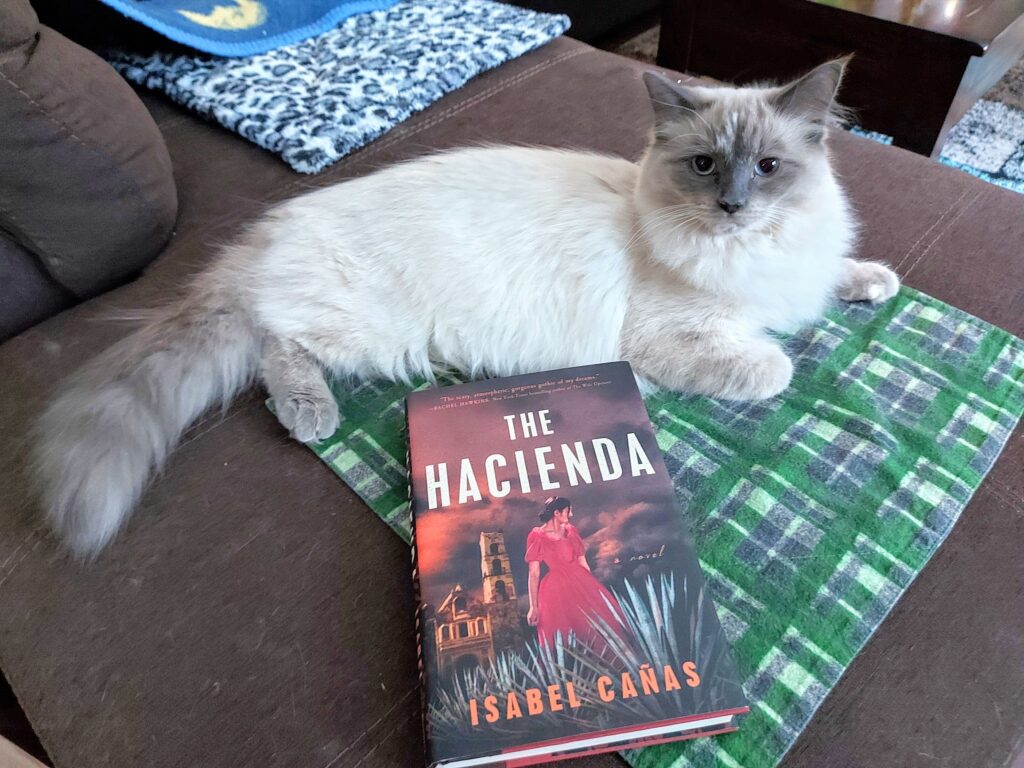The Hacienda by Isabel Cañas

The Hacienda is a gothic novel set in Mexico, along the same vein of Silvia Moreno-Garcia’s Mexican Gothic; however, I like this novel better. It features an actual haunting, not a haunting imagined by the protagonist, that made my skin crawl (although it would have been even more creepy if I had read this novel at night instead of in the bright afternoon), and it has vibes of Daphne du Maurier’s Rebecca.
The Hacienda is mainly set in 1823 after the Mexican War of Independence and is about a young woman named Beatriz whose father was executed, leaving her and her mother without a home or any money. They are forced to move in with her mother’s relatives who treat them disdainfully because Beatriz’s mother married beneath her caste and because Beatriz favours her father with her dark skin and hair.
In order to escape her hellish relations and to have a home of her own again, the pragmatic Beatriz hastily gets engaged to the handsome and wealthy Don Rodolfo Solórzano, choosing to ignore the rumours about his first wife’s sudden death. After they are married, Don Rodolfo takes Beatriz to her new home in the remote Mexican countryside, Hacienda San Isidro. The hacienda is rundown, and the main house is practically abandoned as even Rodolfo’s sister does not live in it. But most importantly, the house is haunted. Beatriz feels cold spots throughout the house, hears an evil girlish laugh, feels hands shoving her, and has visions of horrifying things, such as a skeleton buried in the walls of the house.
With Rodolfo gone and his sister pretending that nothing strange is going on, Beatriz becomes desperate for help and turns to the Hot Priest, aka Padre Andrés, who happens to also be a witch. The Hot Priest, I mean Andrés, can sense that the hacienda is haunted and offers to use his witchy powers to exorcise the spirit from the house.
The Hacienda alternates between Beatriz and Andrés’ perspectives. Through Andrés’ part of the novel, the reader learns about his powers and about Rodolfo’s first wife and learns things about Rodolfo that even Beatriz does not know. The Hacienda is somewhat a predictable novel, but I appreciate how Cañas has incorporated her Mexican heritage into the Gothic horror genre and uses this backdrop to explore themes of racism and colonialism by the criollo (people of pure Spanish descent) over the mestizo (people of mixed European and Indigenous ancestry). The ending is not completely expected or even hoped for, but it makes sense considering the events that unfold in the novel and the characters, so I would say that it is satisfying. The Hacienda has left me interested in reading whatever Cañas comes up with next.